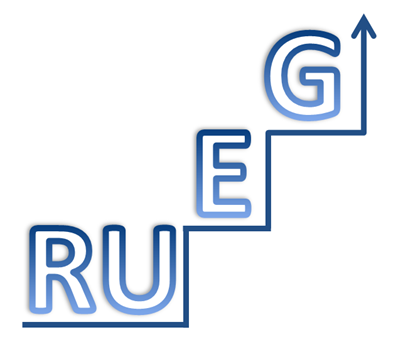Capturing our Sound(scapes)
{{ time.start_TS | TS2dateFormat('MMM') }}
{{ time.start_TS | TS2dateFormat('YYYY') }}
| Admission free |
| Humboldt Lab, 1st floor |
On the occasion of the European Day of Languages, the Humboldt Lab becomes a place of multilingualism and its research in action.
With the Project “Capturing our sound(scapes) – vielfältige Sprachlandschaften an unseren Schulen“, students and teachers captured the linguistic diversity in their schools. Join us for the presentation of the best projects and get inspired by multilingual teaching and educational materials at information booths.
In her talk, Prof. Dr. Rosemarie Tracy will illustrate how valuable multilingualism is for both learners and teachers. A panel discussion will approach the question of why and how multilingualism and its appreciation should be integrated more into lessons and curricula.
In cooperation with the DFG research group “Emerging Grammars in Language Contact Situations: A Comparative Approach” (RUEG) and the Centre “Language in Urban Diversity”.


PROGRAMM
Opening
Talk by Prof. Dr. Rosemarie Tracy
Presentation of soundscaping projects with students and teachers
Break
Panel discussion
with Dr. Marie Leroy (Association of Binational Families and Partnerships)
Prof. Dr. Christoph Schroeder (University of Potsdam)
Dr. Nicole Schumacher (HU)
Dr. Ferdinand von Mengden (FU)
Prof. Dr. Heike Wiese (HU)
Information booths on multilingualism projects and teaching materials
PANEL
Prof. Dr. Rosemarie Tracy is Professor of English Linguistics. After her retirement in 2019 she was granted the title of Senior Professor by the University of Mannheim. Her main research focuses on language acquisition and on multilingual resourcefulness. In addition to her academic publications, Prof. Tracy has published a book on language acquisition aimed at parents and educators, “Wie Kinder Sprachen lernen” (How children acquire languages), as well as a poetry collection, ”Wege Schreiben – schmaler Grat für zwei Füße” (Writing Paths – Narrow Ridge for Two Feet), dlv 2020.
Dr. Marie Leroy, co-coordinator of the Fachzentrum Mehrsprachigkeit within the ”Verband binationaler Familien und Partnerschaften”, is a sociolinguist and language didactician. She focuses on representations of plurilingualism and on (non‑)transmission of languages in plurilingual families.
Prof. Dr. Christoph Schroeder is head of the Department of German as a Second and Foreign Language / Linguistics at the University of Potsdam. Previously, he taught for several years at the Istanbul Bilgi University. His work focuses on language contact research, the study of the acquisition of literacy in multilingual contexts, and the linguistics of Turkish.
Dr. Nicole Schumacher is lecturer for German didactics and German as a Second Language (GLS) at Humboldt-Universität zu Berlin. She is coordinator for the certificate program “German in multilingual contexts”, member of Berlin Interdisciplinary Network for Multilingualism (BIVEM) and Center “Language in Urban Diversity” (LUD). She focusses on Second Language Acquisition (SLA), multilingualism, classroom interaction and language didactics.
Prof. Dr. Ferdinand von Mengden is professor of Linguistics at Freie Universität Berlin. He conducted a PhD thesis on cardinal numerals of Old English. His research on Ancient Germanic Languages led him to more general research question about language change. He is currently working on a monograph on Emergent Grammar. His main research areas comprise (theories of) language change, sociolinguistics (particularly linguistic diversity in urban spaces), language ideologies, and the history of linguistics.
Prof. Dr. Heike Wiese is Professor of German in Multilingual Contexts at Humboldt-Universität zu Berlin. Her research focuses on the dynamics of German in multilingual contexts from Berlin to Windhoek. In 2012, her book on Kiezdeutsch raised awareness of new dialects and language variation outside of standard German. In 2020, she and colleagues published the Duden debate book “Deutschpflicht auf dem Schulhof? Warum wir Mehrsprachigkeit brauchen” (Speaking German compulsorily in the schoolyard? Why we need multilingualism).